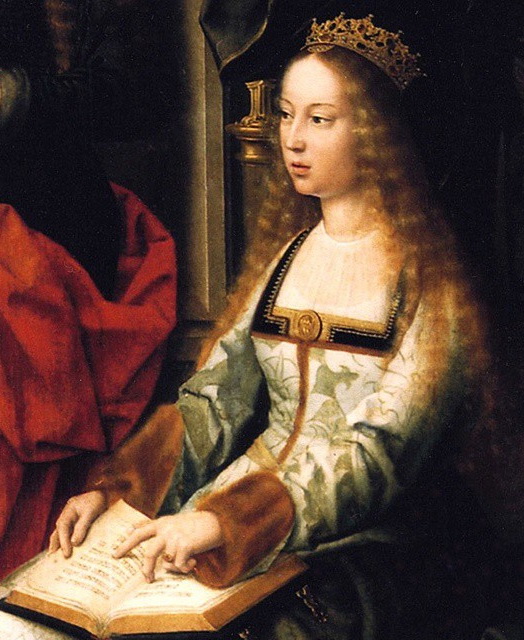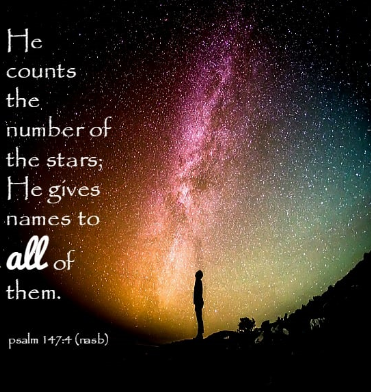I’m getting tired of web publication sites circulating what is essentially non-news. “Hispanic” names are “on the rise” in the USA, and are “in”– and (gasp) with white parents! I’m going to explain to you why I have a problem with this on many levels.
Hispanic and Latino names are not a new occurrence in this country. Obviously we are land-connected to Spanish-speaking nations, and there have been Spanish settlements in the US since the 1500s. We have Spanish place names (Florida, California, Montana, Nevada, to name a few), and yet here we are acting amazed that anyone would suddenly favor these choices? Spanish naming is in our blood and history.

Spanish (Caucasian, white, European) colonization of Mexico.
Names with a “Latin” influence are everywhere, too– technically Latin encompasses such a broad range, and is ever-present in the English language. We name our kids Latin-influenced things every day without even realizing it, and certainly without considering it specifically “Hispanic”. Latin itself is/was a language… you can find it in the everyday vocabulary of people who speak English, Spanish, French, Italian, Portuguese, and more.
(The following images taken from National Geographic’s “The Changing Face of America“, Martin Schoeller. Take note of their ethnicities, how they identify, and their names.)

Harold Fisch, 23, Austin, Texas Self-ID: eastern European, Puerto Rican, Jewish, Texan Census Boxes Checked: other

Daisy Fencl, 3, San Antonio, Texas Parents’ ID for her: Korean and Hispanic Census Boxes Checked: has not yet been counted

Tevah Jones, 22, Grants Pass, Oregon
Self-ID: Trinidadian American/colored
Census Boxes Checked: white/black
“Hispanic” does not mean “non-white”. “Hispanic is definitely in,” says Belly Ballot editor and Baby Name Expert, Lucie Strachonova. “We have seen strong indications of white parents selecting Latino baby names…” Let’s go over what “Hispanic” and “Latino” mean, since sources like Hispanic Business, Latina.com, and Latin Post didn’t seem to question the language of the Press Release.
Hispanic: of or relating to Spain or to Spanish-speaking countries, esp. those of Latin America.
Latino: a Latin American inhabitant of the United States.
Hispanic has always been potentially white– Spain is a European country. Spanish speakers can be any ethnicity. The “especially” in the definition is not a requirement. “Latino” is more understood as what we picture in the Americas– a person with heritage mixed with the native populations and the Spanish (with other stuff, including African, sometimes mixed in with varying amounts). How people identify, though, can be an intensely personal thing and what we can’t do is assert that Hispanic and Latino people are non-white. That’s offensive. These designations are more complex than that.
Neither term refers to race, as a person of Latino or Hispanic origin can be of any race. – Grieco, Elizabeth M.; Rachel C. Cassidy. “Overview of Race and Hispanic Origin: 2000, US Census Bureau
The increase of Spanish names may have more to do with immigration. Here’s a real duh moment… in the USA, we are having a population shift where immigrants from Latin American countries are multiplying, and obviously so are their names. Latin Americans whose families have been in this country for generations are also growing exponentially.
Your sources are full of it. The original story derives from the “experts” at Belly Ballot, the site known for the $5000 Baby Name Contest Hoax they fabricated for publicity.
Their site itself runs on a simple gimmick– create a poll to allow the people in your life to vote on your baby names, and each week the poll with the most votes earns the mom-to-be a prize. Seems like harmless fun, right? Well, sure, it could be. The fact that there is a gimmick is effective in drawing in people, and it could be fun to have others vote on a name, but could be ultimately meaningless if you are not truly invested in the opinions of others ruling your choice.
I decided to give the site a spin, and quickly discovered that my favorite names were not even available on the site, nor could I manually enter my own for loved ones to vote. [To be fair, they only advertise that you can vote on 50,000 top names.] Still, it’s a well designed site with cute, colorful graphics. It attracts people. I’m sure that was the goal they hoped to achieve.
Like most name websites, the generic designations Belly Ballot applies to its names such as “Native American” are not very helpful or informative, considering the vastness of area and language that encompasses. Those are errors by omission. Without language or tribe, how can they be sure their info is accurate? Other unresearched errors on the site would tell you, for example, that the Native American name “Missouri” means “from Missouri”. [For the curious, Missouri is supposedly Miami-Illinois in origin, and means “those who dug out canoes”.] You will find examples like these on most baby names sites, which is Reason #838 why I don’t like most mainstream baby name sites/books. I just want more from my experts.
Who are the experts? Etymologists, onomasticians? Editor Lucie studied English and has been interested in etymology for 3 years. Co-founder Lacey got the idea when she handed out ballots at her baby shower. I do not doubt that baby names are fun or interesting for these entrepreneurs, but they are being quoted as experts in articles dealing with cultural issues. It’s not their fault that baby names are not taken seriously in our society. We treat it like a fun topic, like baby’s first outfit. We tend to forget that baby names are language and heritage, literacy and social studies. Understanding them is understanding ourselves. Conversely, swapping for “misunderstanding” would also be accurate.
Now, the ones reporting what Belly Ballot had to say are all content churners to some extent. You’ll notice that the story is essentially a cut and paste, occasionally with new observations thrown in. See for yourself:
Yes Way, Jose! via Reuters (< who are not responsible for this PRESS RELEASE– a statement created to create buzz and publicity, presumably by Belly Ball ot themselves). : “Hispanic is Caliente.” Yes Way, Jose? Caliente? Por favor.
ot themselves). : “Hispanic is Caliente.” Yes Way, Jose? Caliente? Por favor.
Baby Name Site Claims “Hispanic is Definitely In” – Latina.com. For Fall of 2013, as if we were discussing new fashion color trends. Next Fall, it’ll be Vietnamese names. *eyeroll*
Hispanic Baby Names Gain Popularity – Hispanic Business. To their credit, they did say: “It’s even changing what non-Hispanic whites are naming their children” in their piece, which selectively copied passages from the Press Release.
Latin Baby Names on the Rise for Caucasians via Latin Post: “Does a name really make you more ethnic?” So not only are Latin names not Caucasian, but Caucasians are not ethnic? Excuse me, but Latin names are for everyone, and everyone is “ethnic”– we all have ethnicity. This is the same kind of thinking that talks about something being “skin colored” while only choosing the Apricot crayon from the box.

Some of these names aren’t even solely “Hispanic”. If we look at some of the links mentioned, they go on to list names such as Maria, Isabella, Ernesto. All of these names have been in our country for quite some time. But are these uniquely “Hispanic” names? No. I’ll grant you that some of them we can almost guarantee are coming from Hispanic influence or sources. Howeve r, Maria is used
r, Maria is used  in other languages and cultures, including German and Italian; Ernesto and Isabella are also associated with Italy. Then there’s the fact that Isabella is on the decline, but has been in the top 3 for girls names for 6 years, and tends to not strike white parents as being a “Hispanic” name when chosen. When I think of Isabella, by the way, I think of Queen Isabella of Spain, who I can only assume was white (I never met the lady). Perhaps you might be thinking of Twilight‘s Bella (Isabella), who was also presumed Caucasian.
in other languages and cultures, including German and Italian; Ernesto and Isabella are also associated with Italy. Then there’s the fact that Isabella is on the decline, but has been in the top 3 for girls names for 6 years, and tends to not strike white parents as being a “Hispanic” name when chosen. When I think of Isabella, by the way, I think of Queen Isabella of Spain, who I can only assume was white (I never met the lady). Perhaps you might be thinking of Twilight‘s Bella (Isabella), who was also presumed Caucasian.
These names they used as examples aren’t even on the rise. We just touched on this with Isabella, above. There’s more. Maria has dropped ranking by almost 10 spots in the past 2 years. It was way more popular in the 1950s through 1990s in the United States, than it is today. (Source: Social Security Administration). Same with Ernesto. It’s dropped at least 50 spots in rank in the past 2 years, and enjoyed mucho mas popularity in the 1970s-1990s. Their info on “rising Hispanic names” is totally bunk. Our human population may be rising, but the name ranks are not.
Non-Hispanic people choosing Spanish names to “fit in” is the exception, not the rule. The info being spread quotes white parents who are supposedly trying to “give their kids an advantage” by choosing Hispanic names, and then goes on to interview a white supremacist (???) who discusses how unfortunate it is that white people are not preserving their heritage. Whoa… back the truck up. Does this strike anyone else as subtle propaganda? If not, it’s a very, very unfortunate accident.
The slant I see is one which convinces white parents that they are now the minority and need to be concerned with the uncomfortable changes they now face in the United States. Let’s say I’m incorrect there, and that was not the intent. The cultural shift they credit for the popularity of certain names is still untrue. Caucasians who are not Hispanic are not naming their kids Juan, Pablo, and Ana Maria to blend. No, I don’t have stats on this– it’s just common sense. I’m not saying it isn’t occurring, period, just that this would be the rarer explanation for what we are seeing.
For one, common Hispanic names are still associated in American minds with brown skin and menial labor. Non-Hispanic American parents are much more likely to name their children Apple or Zuma (Gwyneth Paltrow and Gwen Stefani’s kids) than Jose, because names are about hopes, dreams, and aspirations. Opportunity. With that in mind, consider this: many Hispanic folks here are here because this is supposed to be a land of opportunity. So, I would say it is Hispanic parents who are giving children more “white” names, not the reverse. This is a generalization and may vary based on your community, but I feel the country overall reflects this.
Still, that didn’t stop mom Shaina from giving her daughter the “Hispanic” name Isabella, to give her the edge. Shaina (from the press release and “articles” above) laments that although she was a good student, there was less opportunity for her, and that part-Hispanic Isabella will have an increased edge in proving her ethnic identity with her name. I hate to break it to you, but Isabella is going to be lost in a sea of Isabella Smiths, Isabella Joneses, and Isabella Browns. No one is going to think, “Ah! The name! This proves she is Hispanic! Give that girl her scholarship!” Isabella is the #3 girl’s name in the United States. In recent years it enjoyed some quality time as #1. It is used popularly by citizens regardless of race. If Isabella has any advantages from her name, it will be because her mother chose something more popular than her own name was. Isabella is decidedly normal. This neutralizes her. Isabella works because it is safe. Tens of thousands of Isabellas are born in America, yearly.
On my page, one mother (funnily, named Sierra– which is Spanish) expressed concern that she felt Hispanic names were sort of off-limits for her. Even though there were some she liked, she felt it somehow would seem odd for her to choose since her family has no Hispanic heritage that she knows of, whatsoever. I think her opinion is a lot more indicative of the non-Hispanic white majority’s. I do understand her choice, and I respect her doing what feels natural and comfortable. It’s important that parents feel able to connect to a name. If others feel free to branch out, I respect that too.
How do they even know it’s the white parents they are seeing the increase with? Belly Ballot claims that they specifically see Caucasians using Hispanic names at an increasing rate. Are they discovering this data through only their own website? Are they conducting polls asking people what their racial identities are when they favor certain names? Why are we focused so heavily on white people using Latin names, and other racial identities (such as black) are not even mentioned? The origin of this info is never clarified fully in the articles, and my guess is that it’s all assumed.
These issues are racist at worst and culturally oblivious at best. I am very disappointed with how much this has been circulated on the internet by people presenting this as “news”, “fact”, “truth”, or “expert opinion”. Perpetuating this garbage and fluff journalism may be provocative and give people something to talk about, produce readership, but at what cost? We are using erroneous terminology, misinforming and misleading the public, and actually increasing feelings of divide and racism amongst the people. When it comes to baby names and the internet, we have enough of that type of junk already.
(And also, I don’t care what color you are, pick whatever name you want. I only ask that you research it and make sure you understand it beforehand.)
 And then she added that she had named her other children Annabelle Grace, Isaac Christian, and Claire Elise. She was interested in any traditional names, as well. The last name will begin with L. So here is what I have to say to Becky–
And then she added that she had named her other children Annabelle Grace, Isaac Christian, and Claire Elise. She was interested in any traditional names, as well. The last name will begin with L. So here is what I have to say to Becky–




 was, “The One in Which I Help a Couple of Friends”.
was, “The One in Which I Help a Couple of Friends”.











 ot themselves). :
ot themselves). : 
 r, Maria is used
r, Maria is used  in other languages and cultures, including German and Italian; Ernesto and Isabella are also associated with Italy. Then there’s the fact that Isabella is on the decline, but has been in the top 3 for girls names for 6 years, and tends to not strike white parents as being a “Hispanic” name when chosen. When I think of Isabella, by the way, I think of Queen Isabella of Spain, who I can only assume was white (I never met the lady). Perhaps you might be thinking of
in other languages and cultures, including German and Italian; Ernesto and Isabella are also associated with Italy. Then there’s the fact that Isabella is on the decline, but has been in the top 3 for girls names for 6 years, and tends to not strike white parents as being a “Hispanic” name when chosen. When I think of Isabella, by the way, I think of Queen Isabella of Spain, who I can only assume was white (I never met the lady). Perhaps you might be thinking of 


